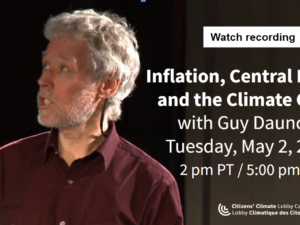PREAMBLE: This commitment to tackling fossil fuel pollution—which drives inflation (4), wildfires, droughts, and biodiversity loss—is both necessary and effective. Pollution pricing ensures by taking action now we are protecting future generations from bearing an even greater cost in the future. QUESTIONS: To reassure Canadians that your platforms will not betray our kids or undermine our health and economic sovereignty, we ask that you respond to the following three questions: Canadians deserve clear, accountable leadership on pollution pricing. We look forward to hearing each of your responses. REFERENCES
A majority of Conservative, NDP and Liberal supporters (1) know that eliminating the carbon price isn’t the best way to make life more affordable (2). It should come as no surprise, then, that almost two-thirds of people across Canada remain open to voting for a party that will defend these principles by holding onto pollution pricing (3).
Pollution pricing also protects our health. Burning fossil fuels overheat our planet and fuel the climate crisis, which science confirms is the greatest global health threat of the 21st century (5). Fossil fuel air pollution has been linked to one in seven premature deaths worldwide (6).
Canadians’ ambition should be matched with strong commitments by you, our political leaders. We commend Canada’s leadership on pollution pricing to date, and hope to see parties commit to even stronger measures in the upcoming election. This is more important than ever, since pollution pricing expands Canada’s options to respond to economic threats from the United States.
https://centreforfuturework.us4.list-manage.com/track/click?u=fe9d8bad7f24969df66a9a92e&id=b6d2e8b884&e=cb1ec0baa0
https://climateinstitute.ca/news/eliminating-industrial-carbon-pricing-competitiveness-canada-climate-progress/?utm_source=newsletter&utm_medium=email&utm_campaign=nmarch25letsi
Questions for Candidates about Carbon Pricing
Home » CCL Canada News » Questions for Candidates about Carbon Pricing









